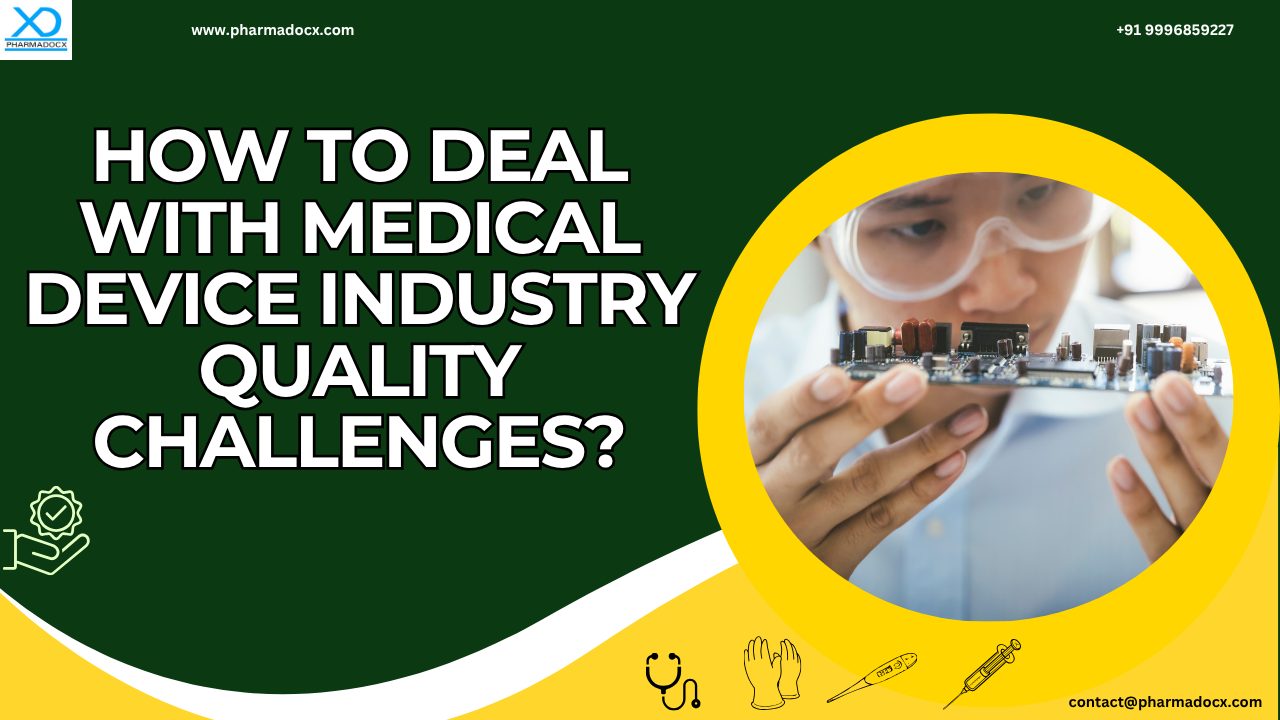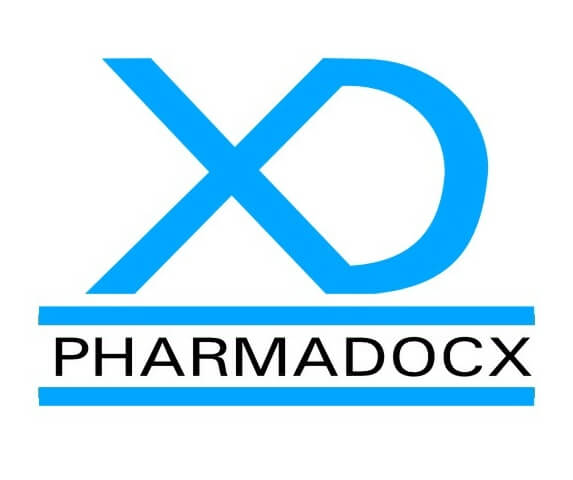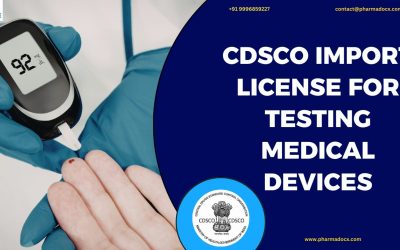In this blog, we have discussed common medical device industry quality challenges. Additionally, we have provided some tips on how to overcome them.
What are medical device industry quality challenges?
Medical device industry quality challenges are technical, regulatory, and operational issues that compromise the device’s safety, effectiveness, and performance. Additionally, they can negatively impact compliance with regulatory standards. These issues can affect the entire product lifecycle from product design and production to post-market monitoring. The issues can be flaws in design controls, gaps in supplier quality, and software and cybersecurity vulnerabilities. Additionally, they can be documentation errors or inadequate post-market surveillance. All of these can lead to quality challenges in the medical device industry. These challenges can arise due to the complexity of devices or varying regulatory guidelines.
What are the common medical device industry quality challenges?
We have highlighted the 6 common medical device industry quality challenges usually faced in this sector.
1. Design and development issues: Medical device design and development issue is one of the top medical device industry quality challenges usually faced by companies. Incomplete user needs assessment or risk analysis can lead to products that are unsafe or ineffective. Errors in engineering or developing the device can affect usability and negatively impact device performance.
2. Compliance with different regulatory requirements: Different countries have slightly different regulatory requirements (US FDA, EU MDR, CDSCO, etc.). Creating one product that complies with regulatory requirements across all markets can be challenging. Furthermore, regulatory guidelines are constantly being updated and changed. Hence, the product has to be constantly modified to comply with the latest regulatory guidelines.
3. Supply chain and component variability: Raw material quality impacts final product quality. Inconsistent raw materials or unreliable suppliers can impact final medical device quality, especially for complex components, such as sensors in wearables. Additionally, supply chain issues can disrupt production. Hence, vetting supplier and raw material quality are of vital importance for maintaining consistent product quality.
4. Process validation and documentation: Inadequate process validation can lead to deviations that might not be caught until post-market surveillance, which is too late. Additionally, poor documentation practices may result in compliance gaps. Hence, inadequate process validation and poor documentation can lead to serious medical device industry quality challenges.
5. Software and cybersecurity risks: Devices are becoming increasingly software dependent and are being fitted with advanced technologies. Hence, in the current scenario, software validation, data integrity, and cybersecurity are becoming increasingly critical. Failure to ensure data integrity and comply with applicable guidelines can lead to breaches of sensitive patient data or even product recalls.
6. Post-market surveillance and CAPA: Underreporting of complaints and adverse events may delay recognition of systemic issues that may further snow ball into quality challenges. Absence of a robust corrective and preventive action (CAPA) system can result in repetitive violations or even product bans.
Impact of medical device industry quality challenges
Quality challenges faced in the medical device industry can have several adverse impacts that will negatively affect company reputation and product credibility.
- Patient harm owing to product safety issues
- User dissatisfaction due to design flaw or usability issues
- Product recalls due to regulatory non-compliance
- Regulatory sanctions due to regulatory non-conformities
- Delayed market approvals because the medical device does not fully comply with all the regulatory guidelines.
How to overcome quality challenges encountered in medical device industries?
- Staying abreast of the latest regulations: Medical device regulations are constantly being updated to ensure patient safety. Medical device companies have to update themselves with the latest regulatory guidelines to stay compliant and maintain market access. Additionally, they must modify their QMS and manufacturing process per the latest regulations.
- Integrating risk management at every stage of production: Risk assessment and management should be part of all phases from medical device design to production. The risk management system should be set up per ISO 14971 guidelines. These guidelines help with manufacturing safer products and better decision-making.
- Smooth and robust QMS implementation: For establishing a robust QMS system, cross-functional teams, clear planning, and strong communication are required. This will ensure effective implementation and long-term effectiveness.
- Using industry-specific QMS tools: The medical device industry is highly regulated and has specific requirements. General QMS software may not be able to serve the purpose of a medical device QMS. Medical device industry-specific QMS software will help streamline processes, reduce errors, and scale operations.
- Improving inter-departmental communication: Effective implementation of the quality management system requires seamless collaboration across teams. Eliminating silos will improve communication among departments and speed up response to quality issues.
Importance of QMS in medical device production
A well-structured and robust quality management system (QMS) is necessary for successful medical device manufacturing operation and production. It serves as a strategic framework that covers all aspects of design, development, manufacturing, and post-market activities of medical device production. We have highlighted the importance of QMS in medical device production.
- Process standardization: QMS ensures consistent documentation, traceability, and repeatability across all manufacturing processes, thereby minimizing variability and human errors.
- Device safety and efficacy: QMS plays a vital role in ensuring safe, effective, and high-quality medical devices are being consistently manufactured. It enforces strict quality controls, risk assessments, and validation procedures. Having a robust QMS translates to the consistent production of safe and effective medical devices.
- Compliance with regulatory guidelines: Regulatory authorities, such as the US FDA and EU MDR, mandatorily require the implementation of a QMS. ISO 13485 provides the guidelines for implementation of an effective QMS. Compliance with ISO 13485 QMS guidelines will ensure a smoother regulatory approval process and reduce the risk of regulatory sanctions or product recalls.
- Continuous improvement: A robust QMS fosters a culture of continuous improvement in the medical device production process. QMS helps the medical device manufacturing process and operations to adapt to market demands, regulatory changes, and technological advancements.
- Improved product credibility: Having a robust QMS demonstrates commitment to consistently manufacturing high-quality products. Thus, it enhances credibility of the product among healthcare professionals, patients, and stakeholders.
We help medical device companies implement and optimize their QMS to align with global standards, such as ISO 13485. Robust QMS implemented by us guarantees long-term success and sustainability.
How can Pharmadocx Consultants help?
- Regulatory guidance and support: We have extensive knowledge of regulatory guidelines and in-depth industry expertise. We help medical device companies easily comply with all applicable regulatory guidelines. Our team will guide you and help you easily navigate the regulatory requirements.
- Effective and robust QMS development, optimization, and implementation: Our team will assist in designing, implementing, and optimizing your quality management system (QMS) per ISO 13485 guidelines. We will tailor your QMS to your business requirements and product risk profiles.
- Risk management support: We will integrate risk assessment strategies in line with ISO 14971 guidelines across all product lifecycle stages.
- Sustained compliance: We will ensure your system and processes are audit-ready and capable of sustaining long-term regulatory compliance.
- Market access support: We will help you easily launch your product in the market per regulatory guidelines.
To effectively deal with medical device industry quality challenges and easily launch your product, drop an email at [email protected] or call/Whatsapp on 9996859227. Our aim is to help medical device companies establish their business per regulatory guidelines in a hassle-free manner. Our comprehensive service covers license application, document preparation, effective QMS implementation, and post-license support. We tailor our services per client requirements.





